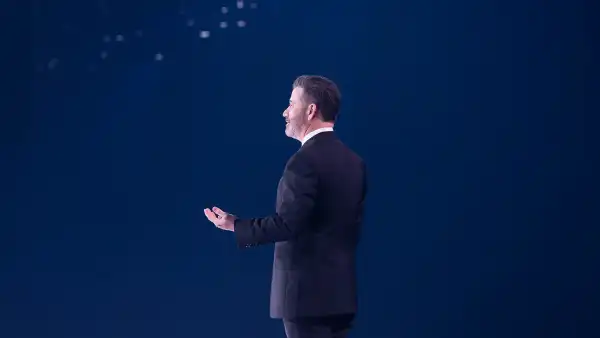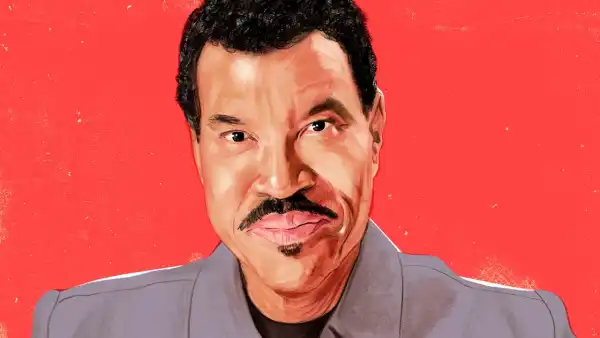
Barbra Streisand called me on a Tuesday afternoon. Well, to be more accurate, one of her many publicists did, and then patched me into Streisand’s home in Malibu (well, really, a compound of three houses), where she was sitting in a room with her assistant, while her press team was on the line for backup. To speak to Streisand, who is now seventy-six and just released her thirty-sixth studio album, “Walls,” one must first accept the fame apparatus built up around her, the protective drawbridge that she has erected over almost six decades in show business and on the course to becoming the most successful female recording artist of all time. But once I got her on the line, the conversation flowed like melted butter. Over the course of a long and winding hour, we covered her disdain for Donald Trump, which was the impetus for “Walls,” the closest thing to a political protest record that Streisand has ever made. We also dipped back in time, discussing her experience directing movies at a time when few women were helming film sets, her first apartments in New York, and why it has taken her four years to finish her memoirs. Also: lost “Yentl” rehearsal videos, “A Star Is Born” costumes, and her infamous cloned pooches. Her tone was breezy, wise, and warm, that of a whimsical grande dame reflecting on her many adventures while still very much engaged in the present. She is about to welcome her first grandchild. “A lot of people don’t want to be known as grandma,” Streisand kvelled. “I think it’s a privilege.”
This interview has been edited and condensed.
Hi, Barbra, how are you?
Well, I’m not too good.
Oh, no.
I was reading that article in New York magazine about children, about kids—only a third of people ages eighteen to twenty-nine want to vote.
I read that same article. Some of them said they just don’t want to go to the post office.
That’s so sad. When I dedicated my new album to the young people, I was thinking about the Parkland students, getting out there and speaking up and rallying and singing and just making themselves heard, you know? So today is kind of depressing for me, when I read something like this, and I read Trump’s tweet. What did he tweet today? Something about, if you want the stock market to go down, vote for Democrats?
Yeah.
So I looked up the truth, and it said Obama inherited a near depression, stabilized the economy, and presided over the growth Trump inherited. I mean, that’s the truth. And then there’s the lie.
So that’s what made me make this album.
What was the first song that you knew you wanted on this new album?
I was in a car and I was listening to the news, as usual. And it was something Trump was saying that I knew was a lie, something about climate change or something, and I thought, Oh, my God, I can’t listen to these lies anymore. And I started to just write down, scribble on my pad: “Up is down,” “Wrong is right,” and “The mud is sliding, the heat is rising.”
I had to express myself in some form, and they became songs, you know?
Have you ever felt like you’ve lived through such a confusing political moment before?
Al Gore in 2000. I just remember screaming at the television, “Don’t, stop this recount, oh, please, God.” It was heartbreaking. This is what I want to say to these young ones: Every vote is so important, so crucial, because Al Gore lost by five hundred and thirty-seven votes in Florida, out of millions of votes. Five hundred and thirty-seven votes in Florida changed that election. And that’s the importance of each vote, each person, each voice, each opinion.
Do you remember the first election you ever voted in?
Oh, my God. When I was eighteen I was in New York. I can’t remember.
Did you feel activated, though, at that age, at eighteen? Did you feel political even then?
I was born in 1942, so eighteen was 1960? Who was running in 1960?
Oh, gosh, Kennedy.
I remember watching that debate.
And, oh, my God, I don’t know if I should say this. But when Al Gore was running I remember calling him up before the third debate. He was on his treadmill, and I said, “You must pay attention to the Presidential debate between Kennedy and Nixon because, you know, people say you’re not authentic. But it was so authentic when you kissed your wife. In other words, authenticity reads, truth reads. If people say you’re wooden, be wooden. Don’t put on an act. Be yourself.”
He called me the other day because he liked the video that I put out, “Don’t Lie to Me.” He called to thank me and I said, “My God, how different the world would look today if you had been President.”
The closing song of this record is a new version of “Happy Days.” Does it feel like an echo of when you sang that song for the first time, in the nineteen-sixties?
I’ve sung it for three different Presidents. I sang it with the hope that Hillary Clinton would be our next President. And I thought, My God, it would be wonderful to sing that song in the joyous way that F.D.R. used it, in 1932. That was his campaign song. With an up beat, you know? And then, of course, I had to sing it after the election. It wasn’t very positive.
Is it difficult for you to look back? I know you’re trying to write your memoir right now.
Yes, yes. Four years in. They wanted the book in two years.
How’s that going?
I find it hard to look back. You know, I have to look myself up. I have to have a researcher that looks my life up.
You do?
Oh, yeah. There’s a fabulous archive on me that I never use, because I find that it’s hard to look at yourself. I don’t mean hard as in negative. I mean, it feels egotistic to look at something about yourself. That’s why I never read books on myself, you know?
Do you have your own archive?
I have letters and things that one of my assistants who’s been with me, God, over forty years, started with, maybe, when she was nineteen. She sends me wonderful things that I forgot, wonderful letters praising “Yentl” that I forgot. I tend to forget the good things written about me and remember the bad. That’s a critical flaw I have.
Sounds like you’re up to the “Yentl” chapter, at least.
Well, I’m not doing it in chronological order. I’ve written about my movies, because I like talking about that, and I like to speak in technical terms that a lot of people are not interested in. I did a chapter on Marlon Brando, my relationship with him. I think I want to end with my Harvard speech, 1995.
That was a beautiful speech.
That was a good speech, wasn’t it? Martin Luther King said, “Peace cannot be kept by force. It can only be achieved by understanding.” And that reminded me of something that I said in that speech at Harvard—the artist as citizen. Someone asked me before why Hollywood is so liberal. I said, “An actor has to walk in other people’s shoes and live in other people’s skins. This does tend to make us more sympathetic to politics that are more tolerant.”
There was a crime committed at the synagogue.
Yeah.
The killer was mad at the Jews for helping refugees. But the Jews have always done that. And in this country we vet people. We vet immigrants, you know? The lies against all these people are very disturbing to me. It’s why I love the song “Lady Liberty,” and especially that last line, “The real danger lies in the sound of silence.”
You were going to write a chapter called “The Boys’ Club,” trying to look at women in Hollywood and how you’ve been treated. Obviously, we’ve had a year for that.
It was fantastic that I made “Yentl” in England, because they had a queen, and because they had a woman as Prime Minister. They gave me the utmost respect as a woman, and as a first-time director. I mean, it couldn’t have been warmer, more delightful. The people from “Yentl” sent a beautiful thing to newspapers about how quietly I spoke on the set. And I said, “I didn’t have to raise my voice, because everybody was finally listening.”
You felt respected on set?
Totally respected, and I had a wonderful cameraman, Peter MacDonald, who’s still my friend to this day. To visualize this movie I made a lot of little films in America, because I didn’t have the time or the money to have a lot of rehearsal. And so I would dress up in costume and put my friends in costume and make them play the parts, and I would have it filmed with an 8-mm. camera.
Somewhere in the world there are 8-mm. “Yentl” rehearsals.
You can probably find them on YouTube.
You don’t like to watch yourself, right? I hear you don’t really like to look at your movies.
No, no. I never do.
Why is that?
I don’t know. It sounds like Ronald Reagan, who used to run his movies at night. I don’t like doing that.
I like to live in the present, not the past. The only reason I said I’ll do the book now is because I couldn’t get movies that I wanted to make made.
Which movies were those? I know you were working on a film about Catherine the Great, and another about the photographer Margaret Bourke-White.
That’s right, and other scripts that I loved and wanted to direct, not be in, and we couldn’t get them on. And now one of them is being made by Steven Spielberg. Another one still can’t get financing. Da da da da da da. I liked “The Book Thief.” I wanted to make “The Book Thief.” And the woman producer hired a man. I wanted to do “Hidden Figures,” but they put on a man.
Why do you think that is?
I’m not sure. I remember meeting with another woman about Catherine the Great. She was a strong woman. Maybe she didn’t want that sense of competition with me, or thinking I might be too powerful or something. I don’t know. I think that happens with women. Don’t you?
I remember you said once that you felt like the language around men and women, especially in positions of power, is different.
That’s right. A man is “commanding” and a woman is “demanding.” He's called … “assertive” and she’s called “aggressive.” I have to look up the speech. I think I gave that in 1992, during the Year of the Woman, right? He’s “forceful,” but a woman is “pushy.” The language gives us the insight into the way women are viewed in a male-dominated society.
And you think that’s maybe been why directing has been difficult in America?
I write a lot about this, about doing “The Prince of Tides.” I filmed the other actors before myself, because I never wanted to appear self-serving, so I did their closeups first.
I wanted to ask you a little bit about your upcoming projects. I know that you were working on a show with Ryan Murphy potentially, yes?
No, no, no. We were in talks about it, but I had to do my album. He wanted me to play a part in a very good script called “The Politician,” and when I turned it down he hired Jessica Lange, who’ll be brilliant. And it’s with Gwyneth. But I wanted to make my album. I couldn’t devote the time to that.
You have been trying to direct and star in an adaption of “Gypsy” for many years. I hope you get to play Mama Rose someday.
That was the last piece I wanted to do as an actress, as a bookend to “Funny Girl,” because the music was written by Jule Styne in both cases. And I really understand her because I understand my mother, and jealousy. You know, a mother’s jealousy about her daughter.
What is your process when you sit down to write your memoirs?
I’ve kept journals, especially in the earlier years, when I was directing “Yentl,” producing “Nuts.” So I have lots and lots of stories. And I write in longhand, with a soft pencil. I like to erase, especially if I’m working on a script or something. I can rewrite.
Do you write in the same place?
I write in my bed, mostly.
With your dogs around you?
Sometimes, yes. And with lots of food.
Earlier this year, you revealed that you used a lab service to clone your late dog Samantha, whom you had for fourteen years. Now you have two new dogs who are her genetic clones. When this news came out, it caused such a fervor that you had to write an Op-Ed for the Times about it. Did the attention to the dog-cloning process surprise you?
First I couldn’t understand it, and then I could understand it. But she was like a daughter to me. She looked me in the eyes.
This is Sammie?
This is Samantha, yeah. She knew when I was in distress, and she would just lie next to me and cuddle. I mean, I get tears in my eyes now just thinking about her.
And so when a friend of mine cloned his dog that he was very close to, I thought, I should do that, because then I’ll have her DNA, at least. Each dog has their own personality, and you can’t clone a soul, obviously.
Do the new dogs seem like her at all?
No, but they looked like her—their hair. It was on her deathbed, actually. They just took a few cells from the inside of her cheek and the outside of her tummy, on her skin.
You also have another dog, Fanny, who is not a clone, right?
Yes. In the meantime, the breeder of Sammie called me and said, “I have a dog here, and I’m about to give it to your friend who fell in love with Sammie”—another director friend of mine, Robert Rodriguez. He fell in love with Sammie when he met her, before she died. And she says, “He can have her if you don’t want her. He understands if you want her because her mother’s name is Funny Girl.”
So I said, “How could I turn down a little girl from ‘Funny Girl”?” And so I named her Fanny, after Fanny Brice, and now she’s on the cover of the New York Times.
Yeah, she looks great. I know you use Instagram now. Do you like it?
I really don’t have the time for it. Today’s Instagram people, they document everything. I don’t like to do that—what I’m eating, what I’m seeing, what I’m doing. No, I can’t do that. I don’t have the time or the energy.
One of my favorite posts was the one you did about your nails.
Oh, yeah, because I was in Tahiti, at Marlon Brando’s island, as a matter of fact, and somebody said to me, “Oh, how do you keep your nails? They’re fake, right?” And I said, “What do you mean, they’re fake? Here, look at them. These are my nails. I don’t believe in plastic nails or whatever they do, those terrible chemicals they put on to make nails.” So, I thought, “No, I’m going to take a picture of my nails and post the truth.” That’s when Instagram is terrific to me, when you can reach a lot of people at the same time.
You got into furniture when you were very young. I know you were trying to buy furniture when you had a walk-up apartment, antique furniture. How did you develop your eye?
I just went to antique shops, you know? I walked around Second Avenue and University Place, and Ninth Avenue, Eighth Avenue. It’s funny. I was on the bill at the Bon Soir with Renée Taylor, who had an antique shop on Eighth Avenue. I remember I bought an antique captain’s desk made of burled walnut. I bought a dentist’s cabinet that I used to keep upstairs in my apartment. When I moved finally from my railroad … what do they call that? A railroad apartment?
Yeah, a railroad.
With the bathtub in the kitchen, you know? Then Elliot [Gould] and I got married, found an apartment on Central Park West. My God. You know whose apartment that was?
Whose?
One of the greatest lyricists ever, Lorenz Hart. You know, Rodgers and Hart? Can you imagine that? So I went from sixty-dollar-a-month rent, in my flat, to four-hundred-and-fifty-dollar-a-month rent, with a duplex, with a terrace, and two wood-burning fireplaces. That was really fun, to furnish that apartment. And so I grew to love antiques. Growing up, we never had a couch until I was eight years old. We only lived with a dining room and an old radio. My grandfather and grandmother, after my father died, we had to move in with them. I guess the dining room became their bedroom, and the other bedroom was for me, my mom, and my brother.
I have your first book, “My Passion for Design,” in which you talk about designing your dream house, in Malibu, which was inspired in part by Monticello and the decorative-arts museum Winterthur, in Delaware.
I love Winterthur, and it must say it in there, I went there to learn about American furniture. I loved it before, but to really go there and study it, and spend two days there, and it inspired that basement of mine, with the shops.
Right, I learned from that book that have your own mini-mall in your basement, with a frozen-yogurt shop, a dress shop filled with your old costumes and Oscars dresses, and a doll shop, called Bee’s, for your antique-doll collection. Do you still keep those going, the shops?
I only walk through them when I’m showing somebody who wants to see them. I couldn’t imagine just storing my stuff. So that’s why, unfortunately, I’ve sold most of my costumes, I’ve given it to charity, or to women’s heart research, or something. But now, when I think about it, I think, Why did I give away all that stuff?
Are you still collecting dolls?
Well, if you saw my house, you’d know I have no more room for anything. I have so many dolls—they’re from the eighteen-nineties, from France and Germany. Mostly France. I haven’t got room for another painting on my wall. But I love Americana, you know? When I got involved in Clinton’s election, in 1992, I just fell in love with American history, and our founders, and George Washington. So I started to collect George Washington memorabilia. I’m leaving a portrait of George Washington to Mount Vernon. It was painted during his lifetime, in 1795.
I want to come back to the record for a minute, and I want to talk about your voice, because it still sounds so phenomenal.
Oh, thank you. See, that’s what I’d love people to talk to me about. But if I talk about politics, that’s all they'll talk about.
My voice was hoarse during my last concert tour. When I sang on the stage, in concert, I couldn’t hear myself. So this time I was pleasantly surprised by how it came out. I thought, My God, it didn’t run away on me. It’s there for me now, when I need it the most. Do you how happy that made me feel, that I could hit the notes that I wanted to hit?
When I first came out, when I was eighteen, I remember somebody asking me, “How do you hold the note so long?” And I said, “Because I want to.” And it was the same thing now.
Do you think you’re going to want to perform the new songs live? I know you have a little stage fright, but these songs are supposed to connect with the people, right?
I want to, on one hand, because I believe so much in these words and this album, this music. But I don’t know quite how. Maybe if I shared a bill with somebody else, so I only had to do my songs. You know, it gets quite boring when you sing the same songs. I like real life, you know? I like being in real life, and I love my garden and my dogs and my husband and my son and my widening family, because my daughter-in-law is going to have a baby. My stepson, you know?
Congratulations.
Yeah, isn’t that great that I can finally be a grandma?
You’ve done these duets with nearly everybody. Is there any artist that you think would mean something to you to share a bill with now, for these songs?
Oh, it could be Adele, it could be Lady Gaga, it could be Beyoncé—women who are in the top of their field. Céline. You know Céline? We did a duet together. She’s lovely. She came to my house for dinner. She’s wonderful. She has a great voice.
Do you remember when you were doing your version of “A Star Is Born” and there were these screen tests where you were trying out the costumes you were going to put on? Somehow, that’s on YouTube.
That’s on YouTube now? Really?
It’s my favorite thing. I love that you did your own costumes. “Costumes from Miss Streisand’s closet”—that’s the best film credit I’ve ever seen.
You know, I was getting a lot of criticism when I was making “A Star Is Born,” because I was in control, that was the deal. The artist had full artistic control, but six million dollars was our budget. Anything over that, the artist had to pay out of his own pocket. So I decided, You know, I have wonderful antique clothes in my closet, and I think this character would look like that. I wanted her to be a liberated—
Yes, the suspenders.
Right?
And ponchos.
That’s right. Ponchos I didn’t wear more than once, on a horse, I think.
Yes, with a turban.
I put on a turban, which I didn’t like looking back at, but I didn’t want my hair to get all knotted. But the point was I gave away my producer credit. I put “executive producer” in the crawl, and I put “Miss Streisand’s clothes from her closet.” I even forgot to put one of the songs I wrote, that I was playing on the piano. A little melody I called Opus 1, or something like that.
I even used, instead of my name, Barwood Films/Jon Peters Production. I didn’t want to have my name too many times. You know, when a man puts his name many times, for writing, creating, directing, producing, nobody says anything.
Sourse: newyorker.com






